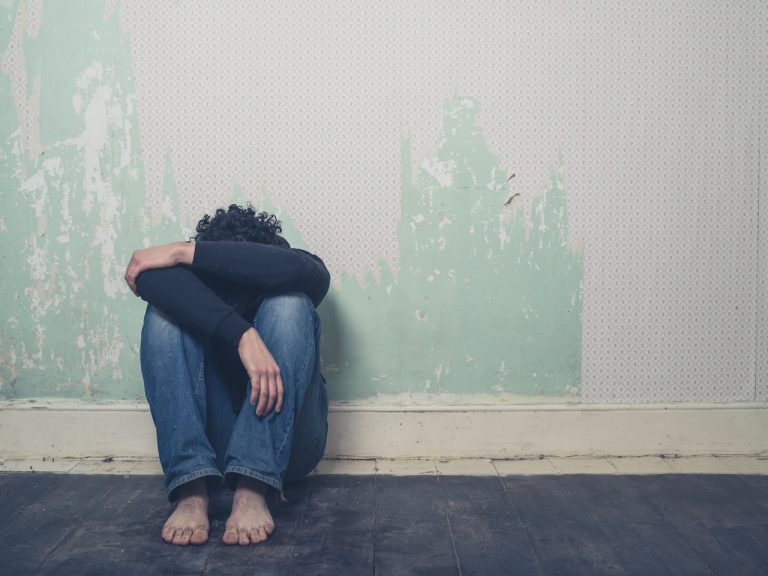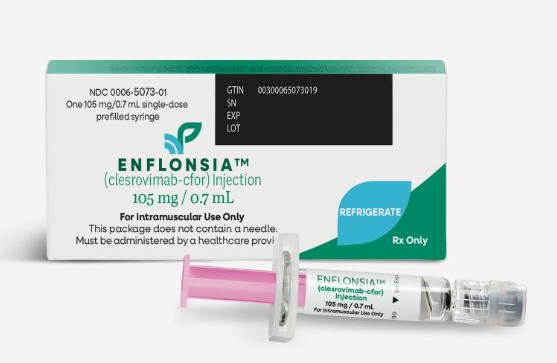Story Highlights
- A poll shows that the fear and anxiety associated with the COVID-19 pandemic has affected the mental health of almost 50 percent of Americans.
- Mental health experts have observed that anxiety stemming from the pandemic has come in waves beginning with anxiety about getting the infection or giving it to someone else to domestic/substance abuse to job loss/financial difficulties.
- Experts are warning that post-traumatic stress disorder from events related to the pandemic can last for years.
After three months of a national lockdown due to the COVID-19 pandemic, experts warn that the United States will continue to experience a mental health crisis with escalating rates of depression, anxiety, post-traumatic stress disorder and suicide.1
Pandemic Affecting Nearly Half of All Americans
According to a poll conducted by Kaiser Family Foundation conducted between Mar. 25 and Mar. 30, 2020, 45 percent of adults said that the pandemic has affected their mental health and 19 percent said it has had a “major impact” on their mental health. The rates were slightly higher for women, African-Americans, Hispanics and parents of children under the age of 18.2
Kathy Hoganbrugen, PhD, founder of the District Anxiety Center in Washington, DC states: “It’s not surprising given all the other huge numbers surrounding the pandemic in terms of joblessness and social distancing, which can equal social isolation. And people dying. People getting sick. All of these big numbers are going to have an outsized impact on our mental health collectively.”3
The Disaster Distress Helpline, a federal emergency hotline operated by the Substance Abuse and Mental Health Services Administration (SAMHSA), for people in emotional distress registered a more than a 1,000 percent increase in in April 2020 compared with the same time period last year. In March 2020, approximately 20,000 people texted that hotline.4
Increasing Cases of Fear and Anxiety
After the World Health Organization (WHO) declared a COVID-19 pandemic on Mar. 11, 2020 and U.S. health officials warned that states must institute home quarantine and social distancing restrictions or there would be nearly two million deaths in the U.S., the fear of being infected or infecting others with the new coronavirus became widespread.5 Crisis Text Line, a free mental health hotline that works in the United States, Canada, UK, and Ireland saw a traffic increase of up to 116 percent in late March and early April when these countries started imposing lockdown measures.6
Typically, the biggest issue that Crisis Text Line usually encounters is people suffering from depression; however, when the COVID-19 pandemic began, anxiety became the most prominent concern.7
During the beginning of the pandemic, people were worried about getting the infection themselves with the words “cough” and “asthma” being very common in the text messages.8 Three in five people in America reported that they feared they would get the virus.9 During this time, many people were also concerned about their elderly relatives getting sick since those over age 65 are at greater risk for complications from COVID-19, especially if they have one or more chronic poor health conditions like diabetes, obesity, hypertension or heart of lung disease.10
Several weeks after the national lockdown, the concerns that people were texting about shifted to problems involving quarantine and isolation, issues such as domestic abuse, sexual abuse and substance abuse.11
The current major concern that Crisis Text Line is now seeing is around issues of job loss, financial problems and grief.12 The United States has lost 20.6 million jobs since mid-March 2020.13
PTSD from COVID-19
Although people associate post traumatic stress disorder (PTSD) with an event such as war, PTSD is a chronic psychiatric disorder that can occur in people who have experienced or witnessed any type of traumatic event.14
During the SARS outbreak in 2003, health care workers and people who were quarantined experienced symptoms of PTSD. Experts are now warning that the COVID-19 pandemic could have a similar effect on people.15
Health care workers in frontline services as well as people who have lost loved ones or jobs due to the disease may be at greater risk for long-term mental health impacts. Those who struggle with other mental health conditions or who have a prior history of trauma are also at an increased risk of more ongoing distress.16
Jaimie Gradus, MPH, an associate professor at Boston University School of Public Health said:
As all this rolls on, the likelihood of compounded mental health consequences is increasing, with social factors really dovetailing into the psychiatric ones… In addition, there may be people throughout the country who missed this first initial wave of job layoffs but who may lose their job a month or two from now. There are people losing their housing and facing enormous health care bills. These consequences of the pandemic—which can all be forms of stress or trauma on a mass scale—will be ongoing and potentially worsening in the coming months. And all [of them] could lead to an increase in psychiatric distress or substance use.17
Mental Health Challenges for Patients
Patients who have recovered from serious cases of COVID-19 may also face long term mental health problems associated with the types of medical treatments and care they received. This is more likely for patients who were required to be admitted in the Intensive Care Unit (ICU) and intubated. These patients may experience “post-intensive care syndrome” (PICS) that could lead to combination of physical, cognitive and mental health impairments after an ICU stay for a critical illness.18
COVID-19 has drastically changed ICU operations and taken away the factors that usually help patients feel safe and grounded, putting COVID-19 patients at a higher risk of PICS.19 Jessi Gold, MD at Washington University in St. Louis, Missouri says, “The ways in which we were normally trying to avoid [PICS], we don’t have as much ability to do that [with COVID-19]. You don’t have family at the bedside, reorienting you or making you feel like you belong in some capacity.” She adds that, “You don’t have family getting you up and walking, which happens if you’re in the ICU and can move. You don’t have a lot of staff coming in and checking on you as much—there’s a lot less in and out movements of people. And yet there’s more codes and beeping and noise and worry and stress—[the patient] might not understand what’s going on.”20
Experts say that going back home from a long period of stay in the ICU can be overwhelming not only to the patient, but to the caregivers as well. Sapna Kudchadkar, MD, PhD of Johns Hopkins Medicine in Baltimore, Maryland says, “It’s a happy time but can be a hard one as well. Acknowledging that is important, and providing resources [is] key.”21
References:
1 Wan W. The coronavirus pandemic is pushing America into a mental health crisis. The Washington Post May. 4, 2020.
2 Achenbach J. Coronavirus is harming the mental health of tens of millions of people in U.S., new poll finds. The Washington Post Apr. 2, 2020.
3 Ibid.
4 See Footnote 1.
5 See Footnote 2.
6 Collman A. A mental-health hotline saw a 116% increase in texts during coronavirus lockdowns and expects COVID-19 to take a psychological toll for years to come. Business Insider June 6, 2020.
7 Ibid.
8 Ibid.
9 Holland K. What COVID-19 Is Doing to Our Mental Health. Healthline May 8, 2020.
10 Garg S. et al. Hospitalization Rates and Characteristics of Patients Hospitalized with Laboratory-Confirmed Coronavirus Disease 2019 — COVID-NET, 14 States, March 1–30, 2020. Morbidity and Mortality Weekly Report 2020; 69(15): 458-464.
11 See Footnote 5.
12 Ibid.
13 Soucheray S. US job losses due to COVID-19 highest since Great Depression. Center for Infectious Disease Research and Policy May 6, 2020.
14 Stieg C. Could you get PTSD from your pandemic experience? The long-term mental health effects of coronavirus. CNBC Apr. 18, 2020.
15 Ibid.
16 Ibid.
17 Stix G. Zoom Psychiatrists Prep for COVID-19’s Endless Ride. Scientific American June 8, 2020.
18 Monaco K. Mental Health Challenges After COVID-19 Recovery. Medpage Today May 18, 2020.
19 Ibid.
20 Ibid.
21 Ibid.













2 Responses
Well you can’t trust anything Kaiser says on the matter. They are one of the largest vaccination and depressant pill pushers out there. They make a lot of money pushing these substances. Kaiser does not care about mental health except what they print on paper. They rush patients in and out, disrupt their workers lives routinely, while management constantly gives themselves raises. Kaiser already pushes more vaccinations and anti depressants then anyone else. Then on the flip side if you have had such ssri prescriptions in the past, they turn around and deny you a range of insurance benefits.
People whom want to avoid mental health issues or get better from them are advised to stay as far away from hospitals as physically possible. They don’t create cures, they create customers.
No one is talking about nursing home patients isolated in covid quarantine. Isolated. It’s a form of torture. Now image your grandmother sitting there. Isolated. Torture